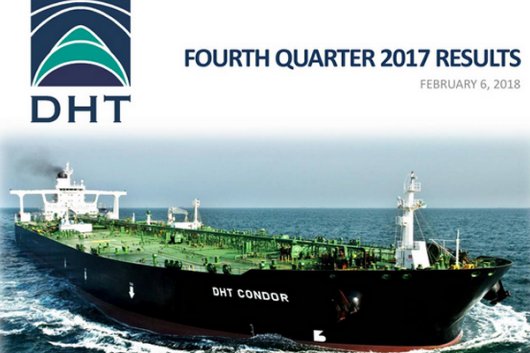Scrubbers not a long-term solution: DHT Holdings CEO Harfjeld
Charterers 'concerned' about availability of compliant fuel, says co-CEO of fleet owner with scrubbers installed.
The top-level management at tanker vessel owner DHT Holdings discussed exhaust gas scrubbers during the company's fourth-quarter earnings call, held on Tuesday.
The Bermuda-headquartered firm is in an interesting position compared to other tanker owners leading up to the global 0.5 percent cap on the sulphur content of marine fuel in 2020, as it owns a number of newbuilds with scrubbers already installed.
Co-CEO Svein Moxnes Harfjeld remarked: "We don't think [the use of] scrubbers is a long-term solution."
Harfjeld acknowledged that the company expects the market to mainly consume 2020-compliant fuel - rather than higher-sulphur product with scrubbers.
"We understand from some of the larger refiners that they do have that [compliant] fuel available, but it will have a price. So that's really a game plan, if you like, and the cost of this will have to be borne by the end users," he said.
DHT Holdings' other CEO, Trygve Munthe, noted that charterers will be "concerned" about the availability of compliant fuel and that some are already choosing to enter into charter contracts for ships with scrubbers as a result.
One customer, described as a "big oil company", was said to be "in the process of taking maybe up to a handful of ships with scrubbers" for delivery in 2019.
Eco VLCCs vs non-eco VLCCs
Discussing the effect of bunker prices on margins for DHT's eco VLCCs compared to its non-eco VLCCs, Harfjeld explained that the eco fleet was earning a premium of between $6,000 and $6,500 above the "standard" VLCCs - said to be, on average, 10 years old.
Munthe also added: "I think there are two types of premiums: one is the premium that relates to the fuel efficiency that is better on newer ships, so they consume less bunker [fuel], simply, and that will impact your earnings. When you look at ships that are typically older, and 15 years of age, there is more waiting time involved and less customers that can use your ships."
Financial results
In its financial results for 2017, DHT posted a year-on-year drop in net income of $2.7 million, or 29.0 percent, to $6.6 million.
The company's fourth-quarter (Q4) loss of $7.5 million was lower than the $5.1 million loss recorded three months earlier. In Q4 2016, DHT's net income was $17.8 million.
The Bermuda-headquartered firm is in an interesting position compared to other tanker owners leading up to the global 0.5 percent cap on the sulphur content of marine fuel in 2020, as it owns a number of newbuilds with scrubbers already installed.
Co-CEO Svein Moxnes Harfjeld remarked: "We don't think [the use of] scrubbers is a long-term solution."
Harfjeld acknowledged that the company expects the market to mainly consume 2020-compliant fuel - rather than higher-sulphur product with scrubbers.
"We understand from some of the larger refiners that they do have that [compliant] fuel available, but it will have a price. So that's really a game plan, if you like, and the cost of this will have to be borne by the end users," he said.
DHT Holdings' other CEO, Trygve Munthe, noted that charterers will be "concerned" about the availability of compliant fuel and that some are already choosing to enter into charter contracts for ships with scrubbers as a result.
One customer, described as a "big oil company", was said to be "in the process of taking maybe up to a handful of ships with scrubbers" for delivery in 2019.
Eco VLCCs vs non-eco VLCCs
Discussing the effect of bunker prices on margins for DHT's eco VLCCs compared to its non-eco VLCCs, Harfjeld explained that the eco fleet was earning a premium of between $6,000 and $6,500 above the "standard" VLCCs - said to be, on average, 10 years old.
Munthe also added: "I think there are two types of premiums: one is the premium that relates to the fuel efficiency that is better on newer ships, so they consume less bunker [fuel], simply, and that will impact your earnings. When you look at ships that are typically older, and 15 years of age, there is more waiting time involved and less customers that can use your ships."
Financial results
In its financial results for 2017, DHT posted a year-on-year drop in net income of $2.7 million, or 29.0 percent, to $6.6 million.
The company's fourth-quarter (Q4) loss of $7.5 million was lower than the $5.1 million loss recorded three months earlier. In Q4 2016, DHT's net income was $17.8 million.

|
How to engineer and manage green shipping fuels | Stanley George, VPS
Effective management strategies and insights for evolving fuel use. |
|
|
|
||

|
Swedish government bans scrubber wastewater discharges
Discharges from open-loop scrubbers to be prohibited in Swedish waters from July 2025. |
|
|
|
||

|
MAN Energy Solutions achieves 100% load milestone for ammonia engine
Latest tests validate fuel injection system throughout the entire load curve. |
|
|
|
||

|
Petrobras secures ISCC EU RED certification for B24 biofuel blend at Rio Grande
Blend consisting of 24% FAME is said to have been rigorously tested to meet international standards. |
|
|
|
||

|
Stolt-Nielsen to fully control Avenir LNG with acquisition
Share purchase agreement to buy all shares from Golar LNG and Aequitas. |
|
|
|
||

|
Bureau Veritas supports launch of CIMC SOE's LNG bunkering vessel
Handover of Seaspan Energy's cutting-edge 7,600-cbm vessel completed. |
|
|
|
||
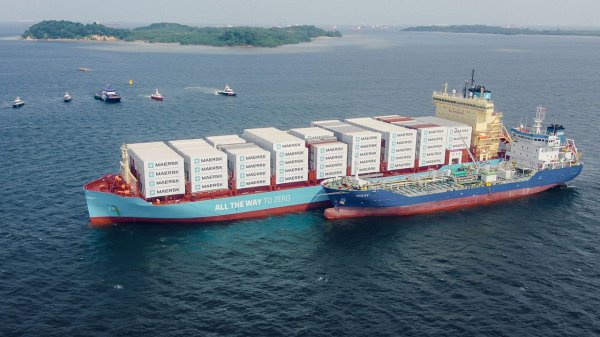
|
Methanol as a marine fuel | Steve Bee, VPS
How environmental legislation has driven the development of low-sulphur fuels and methanol-ready ships. |
|
|
|
||
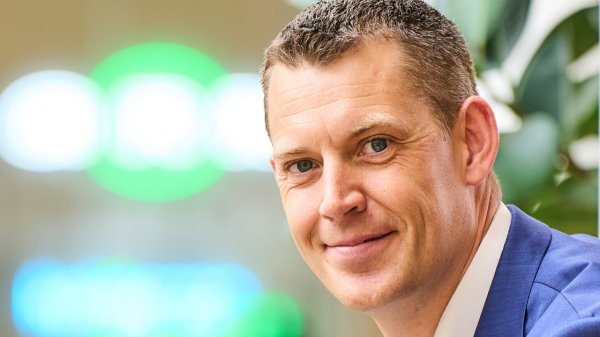
|
Martin Vorgod elevated to CEO of Global Risk Management
Vorgod, currently CCO at GRM, will officially step in as CEO on December 1, succeeding Peder Møller. |
|
|
|
||
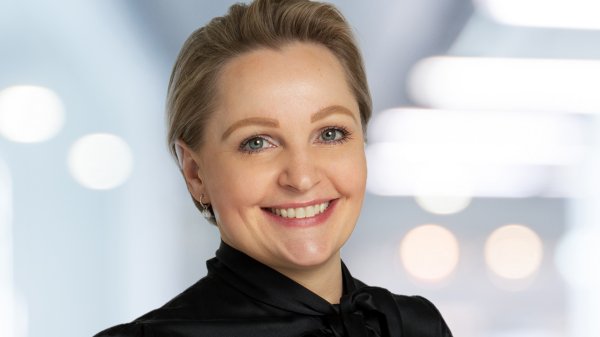
|
Dorthe Bendtsen named interim CEO of KPI OceanConnect
Officer with background in operations and governance to steer firm through transition as it searches for permanent leadership. |
|
|
|
||
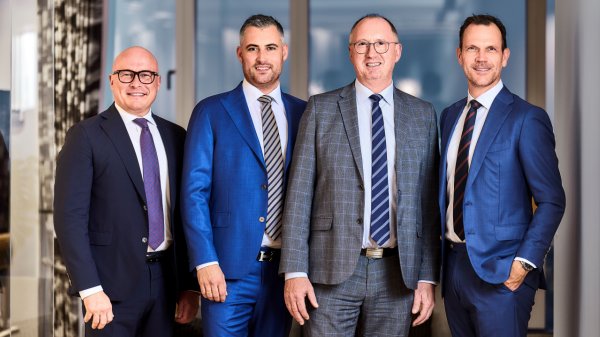
|
Bunker Holding revamps commercial department and management team
CCO departs; commercial activities divided into sales and operations. |
|
|
|
||
Related Links
- · Finnlines to fit newly acquired ship with scrubbers [Insights]
- · Foreship predicts up to 30% of shipping will choose scrubbers [Insights]
- · DFDS bookends century of ships with PureSOx scrubbers [Insights]
- · Quadrise expects to start combustion boiler trial in early 2018 [Insights]
- · Wartsila CEO highlights NCL engine and scrubber order [Insights]

